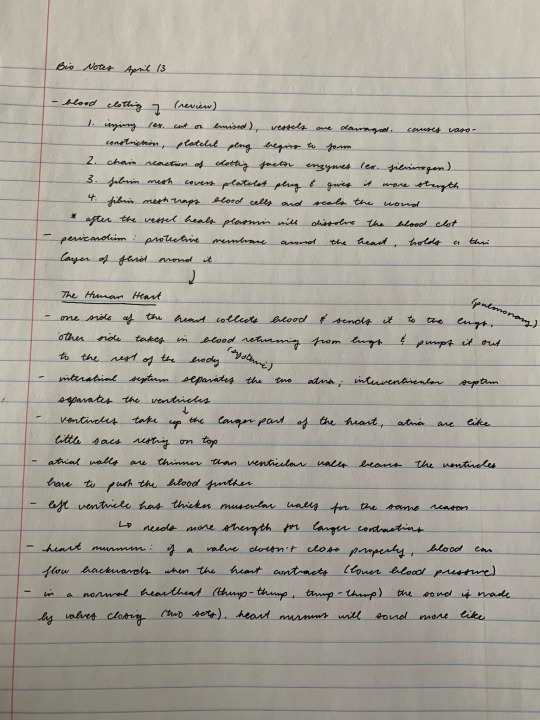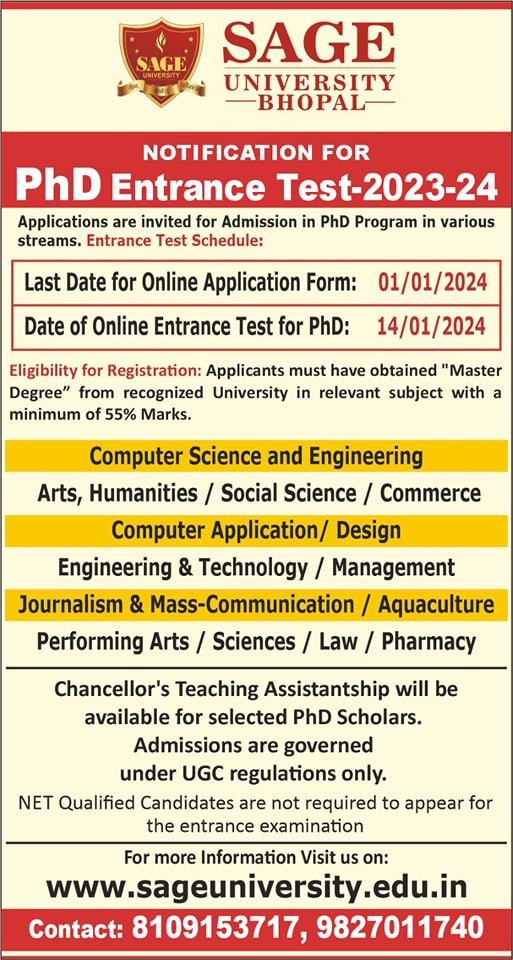#social sciences journals
Explore tagged Tumblr posts
Text
High Rent Prices Are Literally Killing People, New Study Says
85 notes
·
View notes
Text
(4/10/23)
As someone who graduated w/ a humanities degree I want to let fellow humanities people know that
you’re not a failure for not having your dream job straight out of college/university
if it takes a long ass time for you to get that job, it’s normal
some of these people will say very unhelpful, un-uplifting things and you gotta ignore them
I don’t want to get too vulnerable, but I don’t have any comments about the light at the end of the tunnel. I just hope we all get through there.
#post grad problems#post grad life#studyblr#bullet journal#langblr#unvieilesprit#frenchblr#a little sad post sorry#university#college#humanities major#social sciences#employment#unemployment#still unemployed#i hate being unemployed#i need a job#jobless#jobs#arts and entertainment#study
71 notes
·
View notes
Text
Just because I know not of math or science does not mean I know of nothing.
2 notes
·
View notes
Text




some study & journaling moments from recently🧡
#studyspo#studyblr#journal#journalling#study inspo#study motivation#psychology#psych studyblr#psych student#science studyblr#social science#science student#study aesthetic#study account#academia
41 notes
·
View notes
Text

On the Search Engine with PJ Vogt podcast, Ezra Klein has good advice for journalists who are still on Xitter: Leave.
#science#technology#Xitter#journalism#Search Engine with PJ Vogt#podcast#Ezra Klein#Marshall McLuhan#Elon Musk#internet#social media
4 notes
·
View notes
Text
-
#it’s so weird how u can just feel two extremes and both r just so real#like often ill feel so suicidal and angry and upset etc but then other times I just feel so hopeful for the future and happy w my group#of friends#n both can b true but I just kinda get scared of when I feel rlly depressed n stuff bc it just feels so unbearable#n I just feel so out of control#idk last week was a p good week while socially exhausted#it was acc good to socialise and have fun etc#but idk I get my ups and downs so frequent idk if it’s normal to feel this way#but while im ill I’ve got an interview for college on Friday#trying again idk if ill even get in tbh#and im probably gonna drop out lollllll lit dropped out 4 times already#n every year I try but I’ve been out of work/education since late last year n I just feel I need to do something#even tho I struggle w my mental health a lot n just functioning like going outside and socialising and loads of ppl and noises it’s just#v overwhelming so idk if im just making another mistake but I picked a different course this time and it’s lower than my last so I’m hoping#they’ll give me a shot ig im worried they’re gonna judge me for dropping out so much but tht was care#and I just don’t wanna work w children / care anymore#and ive done social sciences before just the foundation level so I wanna progress#journal
2 notes
·
View notes
Text
By: D. Abbot, A. Bikfalvi, A.L. BleskeRechek, W. Bodmer, P. Boghossian, C.M. Carvalho, J. Ciccolini, J.A. Coyne, J. Gauss, P.M.W. Gill, S. Jitomirskaya, L. Jussim, A.I. Krylov, G.C. Loury, L. Maroja, J.H. McWhorter, S. Moosavi, P. Nayna Schwerdtle, J. Pearl, M.A. Quintanilla-Tornel, H.F. Schaefer III, P.R. Schreiner, P. Schwerdtfeger, D. Shechtman, M. Shifman, J. Tanzman, B.L. Trout, A. Warshel, and J.D. West.
Published: Apr 28, 2023
Abstract: Merit is a central pillar of liberal epistemology, humanism, and democracy. The scientific enterprise, built on merit, has proven effective in generating scientific and technological advances, reducing suffering, narrowing social gaps, and improving the quality of life globally. This perspective documents the ongoing attempts to undermine the core principles of liberal epistemology and to replace merit with nonscientific, politically motivated criteria. We explain the philosophical origins of this conflict, document the intrusion of ideology into our scientific institutions, discuss the perils of abandoning merit, and offer an alternative, humancentered approach to address existing social inequalities.
1. Introduction
We live in an incredible time of human history. As Barack Obama said: “If you had to choose one moment in history in which you could be born, and you didn’t know ahead of time who you were going to be—what nationality, what gender, what race, whether you’d be rich or poor, gay or straight, what faith you’d be born into . . . you would choose right now.” While the benefits of significant global progress and economic development have not been shared equally, the world as a whole has never been healthier, wealthier, better educated, and in many ways more tolerant and less violent, than it is today.
How did we get here? Science provided solutions to such calamities as famine and plague, transforming them “from incomprehensible and uncontrollable forces of nature into manageable challenges.” By improving the world economy and increasing global wealth, scientific progress helped create a more peaceful and just world. Science eradicated smallpox, discovered penicillin, decoded the SARSCoV2 virus in a weekend, helped to halve the maternal and child mortality rate globally, revolutionized agriculture, contributed to extending life expectancy in every country, and has generally granted humanity the gifts of life, health, wealth, knowledge, and freedom. By increasing literacy and communication, science has promoted empathy and rational problemsolving, contributing to a global decline in violence of all forms.
Of course, serious problems continue to challenge us; poverty, inequality, wars, and violence persist. Climate change, biodiversity loss, antimicrobial resistance, and pandemic disease threaten global gains made over the past century. However, science continues to be the best tool humanity possesses to address these complex, collective challenges. Indeed, science holds the key to solving these problems—it provides the basis for renewable energy technologies, mitigating anthropogenic impact on the global climate, feeding the world’s growing population, controlling pandemics, and eradicating debilitating diseases. Of course, science alone is not sufficient: science is but a tool that can be used for good and bad. It is our responsibility as a society to use it responsibly, ethically, and effectively.
Fulfilling this responsibility, however, is being hindered by a new, alarming clash between liberal epistemology and identitybased ideologies. Liberal epistemology prizes free and open inquiry, values vigorous discourse and debate, and determines the best scientific ideas by separating those that are true from those that are likely not. The statuses, identities, and demographics of scientists are irrelevant to this great sifting of valid versus invalid ideas.
In contrast, identity-based ideologies seek to replace these core liberal principles, essential for scientific and technological advances, with principles derived from postmodernism and Critical Social Justice (CSJ), which assert that modern science is “racist,” “patriarchal,” and “colonial,” and a tool of oppression rather than a tool to promote human flourishing and global common good.
In this perspective, we explain the differences between the two epistemologies and argue that meritocracy (grounded in philosophical liberal epistemology), however imperfect, is the best and fairest way to conduct science. We endorse policies to mitigate existing inequalities of opportunities, but explain why CSJ-based policies are pernicious (CSJ differs from social justice as a concept). Therefore, we offer a liberal, humanistic alternative that is compatible with maximizing scientific advances.
[...]
7. The Way Forward
Science has been the driving force behind unprecedented improvements in the global quality of life—from advances in medical diagnostics and cancer treatment to the information technology revolution, from the growth of agricultural productivity to the development of sustainable energy. Science and technology are global and highly competitive. If dismantling the meritbased practices of the U.S. and other democratic countries continues unabated, the loss of leadership in developing cuttingedge technologies is likely to eventuate.
For science to succeed, it must strive for the nonideological pursuit of objective truth. Scientists should feel free to pursue political projects in the public sphere as private citizens, but not to inject their personal politics and biases into the scientific endeavor. Maintaining institutional neutrality is also essential for cultivating public trust in science. The rush to create systems institutionalizing racial, ethnic, and gender preferences in college admissions and hiring will further corrode public trust in academia and science (e.g., surveys from the U.S. show that most Americans, including most Americans of color, reject such preferences). Although no system is guaranteed to eliminate all biases, meritbased systems are the best tool to mitigate it. Moreover, they promote social cohesion because they can be observed to maximize fairness.
Admittedly, meritocracy is imperfect. The best and brightest do not always win. But the idea that meritocracy is nothing but a myth is demonstrably false, indeed absurd. Were it but a myth, college admissions and hiring could be conducted without regard to applicants’ qualifications, and students or employees could be selected at random.
The role of science in rectifying social inequalities goes beyond “trickledown” effects of scientific progress. Science can help to develop programs addressing both the root causes of inequalities and the effectiveness of remedial policies. Recent works by Banerjee and Duflo illustrate how wellfounded scientific methodology can narrow the gap between rich and poor countries. Heckman’s work quantifies the impact of preschool education on students’ success. In the field of artificial intelligence, one of the most active areas of research is concerned with discrimination, fairness, and social accountability. The distinctive features of these examples, setting them apart from CSJ, are that they are based on scientific evidence and logic and they address the root causes of inequalities, rather than their symptomatic manifestations.
There is a large literature in the field of psychology on the role that demographic biases play in how we judge individuals. Such biases are real and a justified concern, but fighting them with opposite biases and undermining merit is counterproductive. Two of the most robust findings in the literature are: (1) people massively judge others on their merits when their merits are clear and salient; and (2) in such situations, stereotypes and implicit biases are minimized. Thus, a sharp focus on merit minimizes bias and maximizes the chances that those who best meet the relevant standards (for admissions, hiring, publication, or anything else) will be rewarded, thereby promoting inclusion. For example, standardized tests can help to fairly evaluate applicants from diverse backgrounds and—if used properly—increase diversity. A strict focus on merit, properly implemented, also reduces the influence of bias, department politics, nepotism, and favoritism, thus facilitating diversity, while maximizing scientific quality and the public’s confidence and trust in the academy and science.
How do we begin the process of depoliticizing science and strengthening merit-based practices? We offer six concrete suggestions:
Insist that government funding for research be distributed solely on the basis of merit.
Ensure that academic departments and conferences select speakers based on scientific, rather than ideological, considerations.
Ensure that admissions, hiring, and promotion are meritbased and free from ideological tests.
Publish and retract scientific papers on the basis of scientific, not ideological, arguments or due to public pressure.
Require that universities enforce policies protecting academic freedom and freedom of expression, according to best practices promulgated by nonpartisan free speech and academic freedom organizations, such as the Foundation for Individual Rights and Expression.
Insist that university departments and professional societies refrain from issuing statements on social and political issues not relevant to their functioning, as recommended in the University of Chicago’s Kalven Report.
Although much has been written about DEI, the arguments advocating it fall into familiar categories: reparative justice is needed to redress historical discrimination; DEI is necessary to fight current discrimination; and DEI is needed to level the playing field and achieve equal outcomes.
With respect to reparative justice, affirmative action policies are ineffective, arguably unfair, and counterproductive. Although we see no role in science for identitybased policies, we recognize that the playing field is not level. Outreach in admissions and hiring to candidates from less advantaged backgrounds is important, not only to promote fairness, but to enlarge the pool of promising candidates. Schools and universities have a role to play in leveling the playing field by uplifting students who have come from more difficult life circumstances, not by imposing quotas or lowering academic standards, but by providing students with opportunities to develop the rigorous skills they need to enter scientific fields, and the support to do so. In this way, merit and diversity become synergistic rather than antagonistic.
Advocates of CSJ approaches to DEI often present the options as if it is either CSJ or bigotry. We reject this false dichotomy. Dismantling or disrupting institutional practices that have produced science’s achievements, and replacing them with untested methods opposed to the Mertonian norms is a dangerous experiment that jeopardizes the future of science.
8. Conclusion
Imbuing science with ideology harms the scientific enterprise and leads to a loss of public trust. If we continue to undermine merit, our universities will become institutions of mediocrity rather than places of creativity and accomplishment, leading to the loss of the competitive edge in technology. Thus, we need to restore our commitment to practices grounded in epistemic humility and the meritocratic, liberal tradition.
We need to be vigilant against the dilution of our merit evaluations by biases, ideology, and nepotism. Moreover, as a community, we should continue to invest in mentoring and education to help people develop their full potential. Adopting the guidelines we have suggested does not mean that we ignore the contributions of past racism and sexism to the inequalities we observe today. It means addressing these issues in a fundamentally positive way—not by introducing diversity metrics into funding or hiring decisions, nor by weakening the standards for university admissions and professional advancement, but by investing in the early pipeline, for example, by strengthening educational outreach and programs to increase access to sustained quality education and early exposure to STEMM.
Scientists must start standing up for the integrity of their fields despite the risk of bullying and verbal attacks; donors and funders should condition their support on nonpartisan and rational scientific pursuit. Science as a free pursuit of knowledge untainted by ideological orthodoxies maximally enhances the public good.
9. Afterword
Perhaps the grandest irony of them all, and the saddest commentary on the state of academia, is that this article, defending merit, could only be published in a journal devoted to airing “controversial” ideas. As we were finalizing the manuscript for publication, the Office of Science and Technology Policy of the White House released a 14-page long vision statement outlining the priorities for the U.S. STEMM ecosystem. The word “merit” appears nowhere in the document. In February, 2023, The National Academy of Sciences released a report titled “Advancing Antiracism, Diversity, Equity, and Inclusion in STEMM Organizations: Beyond Broadening Participation.” The report describes merit as a nonobjective, “culturally construed” concept used to hide bias and perpetuate privilege, refers to objectivity and meritocracy in STEMM as myths, and calls for merit-based metrics of evaluation to be dismantled.
==
When merit is a "controversial idea," that needs to be "dismantled," we're through the looking glass.
For anyone who is going to bald-faced lie and insist that "nObOdY iS dOiNg tHiS!" be aware they have a six-page bibliography with 149 citations. Start there, and good luck. And yes, it includes the notorious "Feminist Glaciology" paper.
#Journal of Controversial Ideas#merit#meritocracy#make merit matter#liberal epistemology#epistemology#science#evidence#critical social justice#social justice#corruption of science#corruption of STEM#decolonize science#decolonize STEM#ideological corruption#objectivity#religion is a mental illness
9 notes
·
View notes
Text
Has anyone read 'Crippled' by disabled academic and journalist, Frances Ryan?
I ask on account of the potentiality of a non-fiction book group being created.
Full-title citation below:
Ryan, F. (2019) Crippled: Austerity and the demonisation of disabled people. Verso Books.
#sociology#society#disability#social science#journalism#capitalism#austerity#poverty#gender#demographics#demography#history#nonfiction#culture
7 notes
·
View notes
Text
Unlock Your Academic Potential: Pursue a PhD at SAGE University Bhopal
SAGE University, Bhopal is happy to share that we are going to conduct entrance exam for our upcoming PhD Batch 07 ( Spring 2023-24). Important dates and details of the entrance exam is given below. Apply Now!
More details visit website: https://sageuniversity.edu.in/

#PhD#PhD entrance exam#online entrance test for phd#SAGE University Bhopal#best university in bhopal#computer science and engineering#computer application#design#engineering & technology#performing arts#management#sciences#law#pharmacy#aquaculture#social science#journalism & mass communication#commerce
1 note
·
View note
Text
#poll#polls#major#majors#college#college majors#university#literature#writing#linguistics#journalism#computer science#comp sci#chemistry#physics#math#history#philosophy#psychology#social work#biology#nursing#criminal justice#political science#accounting#finance#marketing#business#art#music
5 notes
·
View notes
Text
Job - Alert 📜

📢 Werde Teil unseres Teams! Referent*in Wissenschaftskommunikation (m/w/d) 📝
Das Max Planck Institute for Comparative Public Law and International Law
sucht ab dem 01.06.2025 eine/n engagierte/n Referent*in für Wissenschaftskommunikation in Voll- oder Teilzeit.
📅 Bewerbungsfrist: 30. Januar 2025
Du bringst ein überdurchschnittliches Universitätsstudium in den Rechts-, Politik-, Geistes- oder Sozialwissenschaften mit und hast Erfahrung in der Wissenschaftskommunikation? Dann freuen wir uns auf deine Bewerbung!
👉 https://www.academiceurope.com/job/?id=6480
Gestalte die Zukunft unserer Forschung aktiv mit!
#hiring#jobs#science#jobseekers#political science#public relations#social science#journalism#humanities#law
0 notes
Text
Finding a leading platform that offers the best publishing solutions for Social Science Journal? Approach Innovare Academic Sciences!
For more information, you can visit our website https://www.innovareacademics.in/ & https://daawriter.in/ & https://ijcr.info/index.php/journal or call us at +919165136558
1 note
·
View note
Text
#Breaking news#Headlines#Latest updates#World news#Politics#Economy#Technology#Entertainment#Sports news#Health news#Science discoveries#Climate change#Weather report#Local news#Crime report#International news#Business news#Government policies#Global events#Opinion articles#Social media trends#Investigative journalism#Election coverage#Market analysis#Celebrity gossip#Natural disasters#Protest movements#National security#Public health updates#Education news
1 note
·
View note
Text
WTF: What Happens When “Nature” Speaks on Politics in Wrong Time and Wrong Place
A Reflection on Science, Trust, and Boundaries A heartfelt appeal to Nature and other science journals: Focus on the strengths of scientific inquiry and leave politics behind “What the F*ck!” my 87-year-old distinguished mentor blurted out when he saw the tweet I shared with him yesterday. He was visibly frustrated. I could feel his dismay. This man has spent decades shaping the scientific…
#Big Pharma Criticism#Elon Musk and X#Free Speech Boundaries#Impact of Social Media on Science#Nature Journal Controversy#Public Trust in Science#Robert F. Kennedy Jr. Health Advocacy#Science and Politics#Scientific Credibility#Scientific Journals and Neutrality
0 notes
Text
Amazing life hacks found here...
#psychology
#Human behaviour
Please check out my new channel. Please like and subscribe. I am an extremely small channel trying to get started. Much appreciated. Gratitude. ❤️❤️❤️
#Psychology#human brain#cognitive science#psychology#social science#lifestyle#life#survival#physics#Simulation theory#alternative#Paranormal#Vampires#Westminster#London#Journaling#Writing#mindfulness#very mindful
0 notes